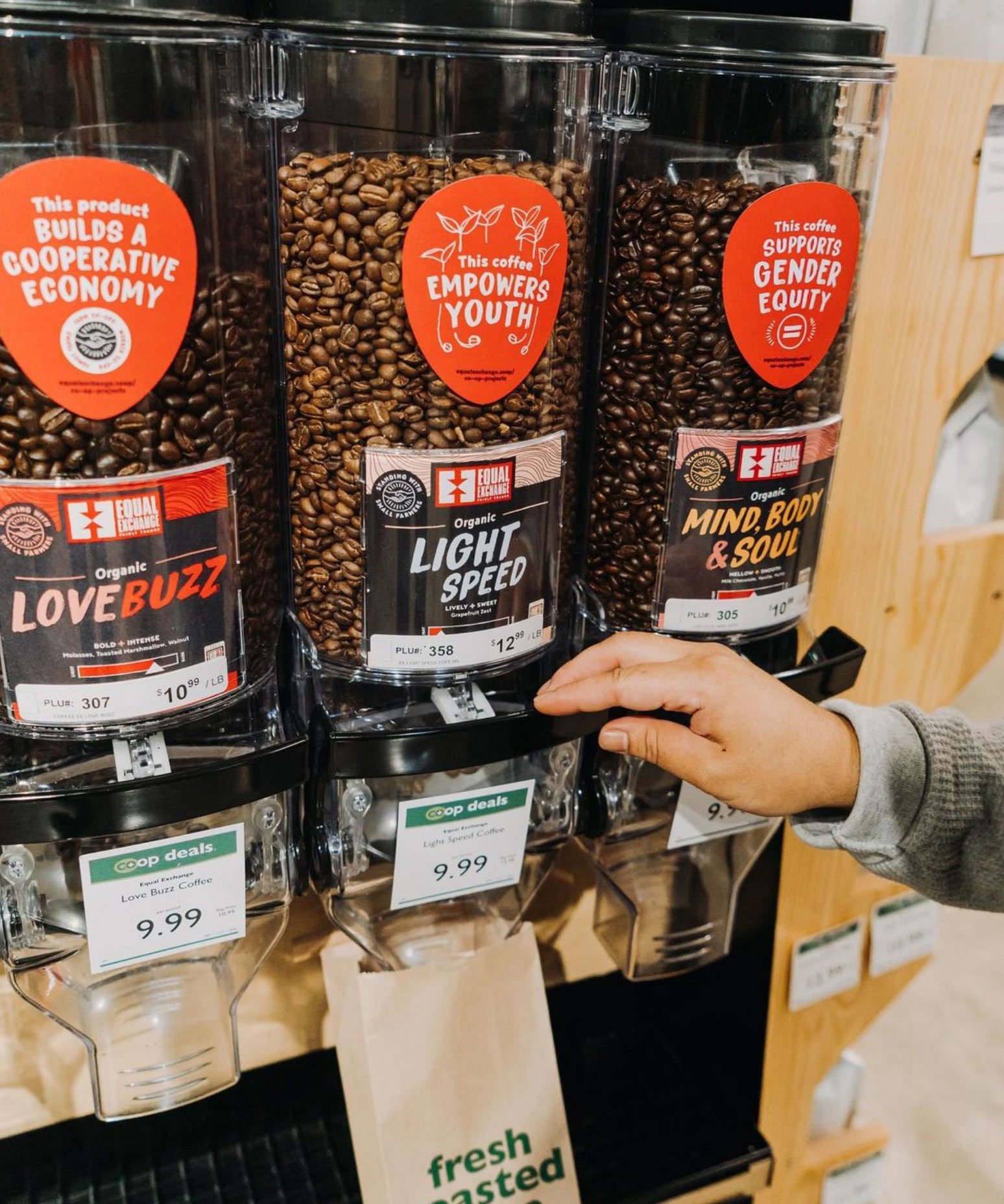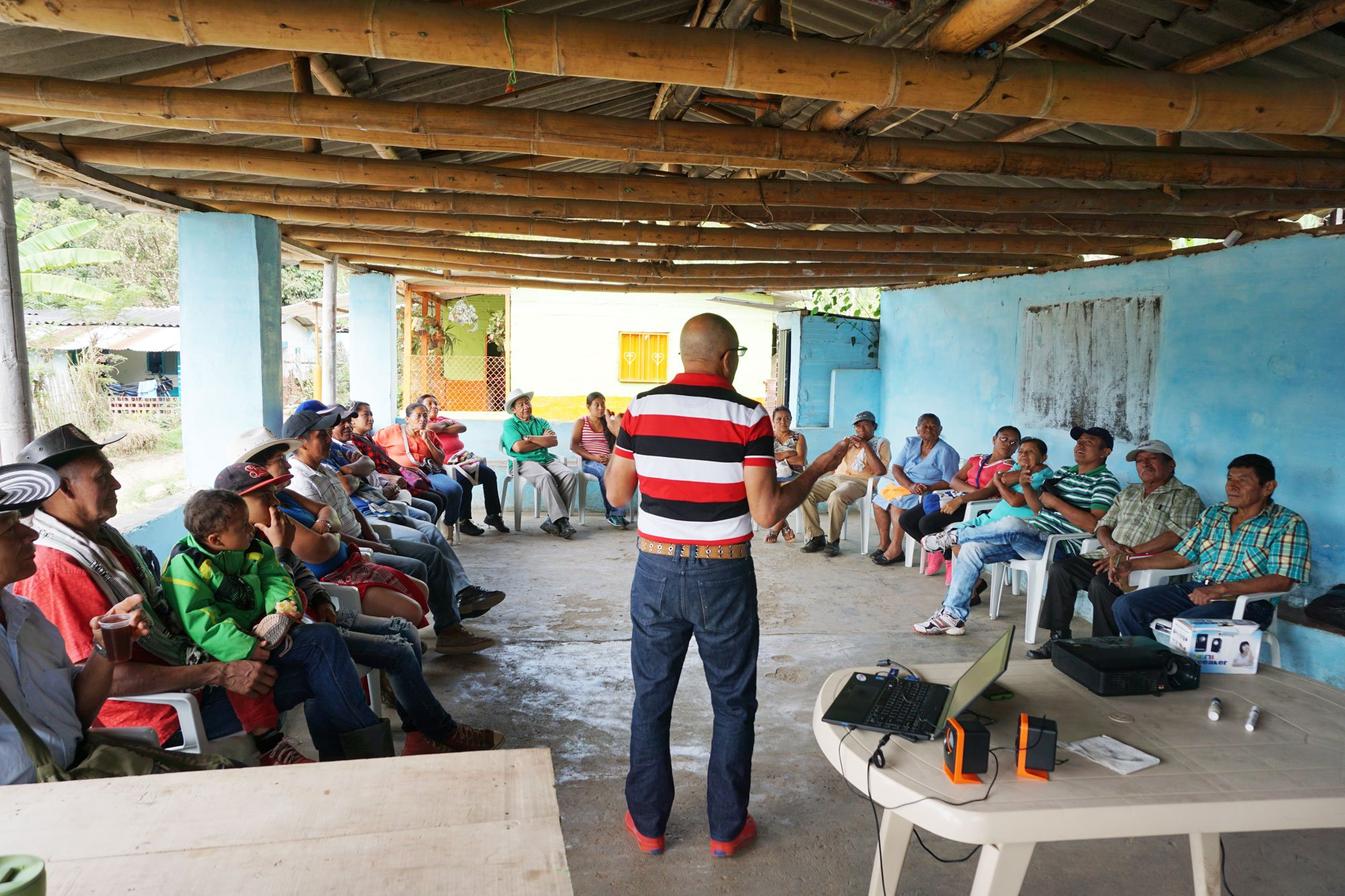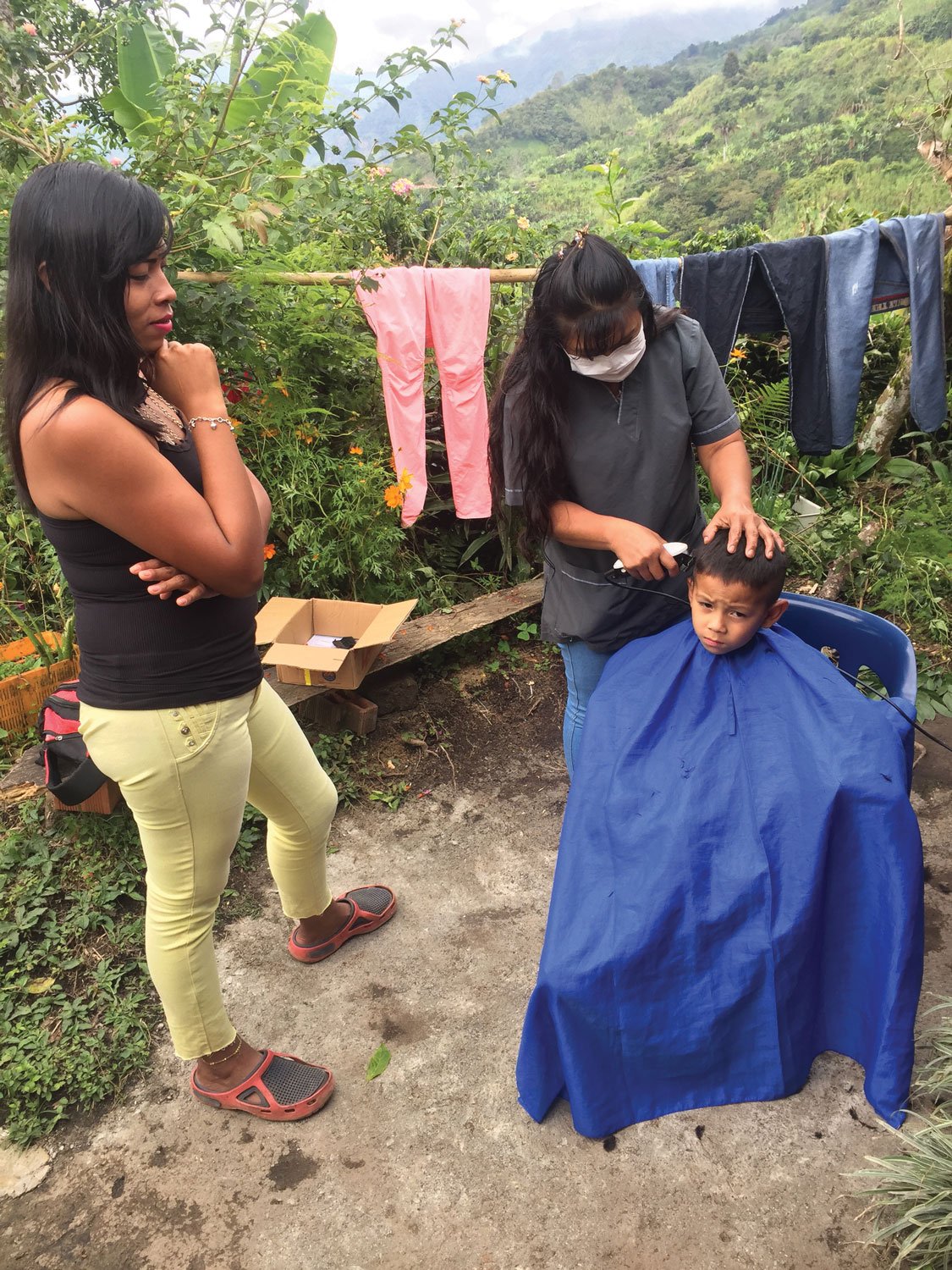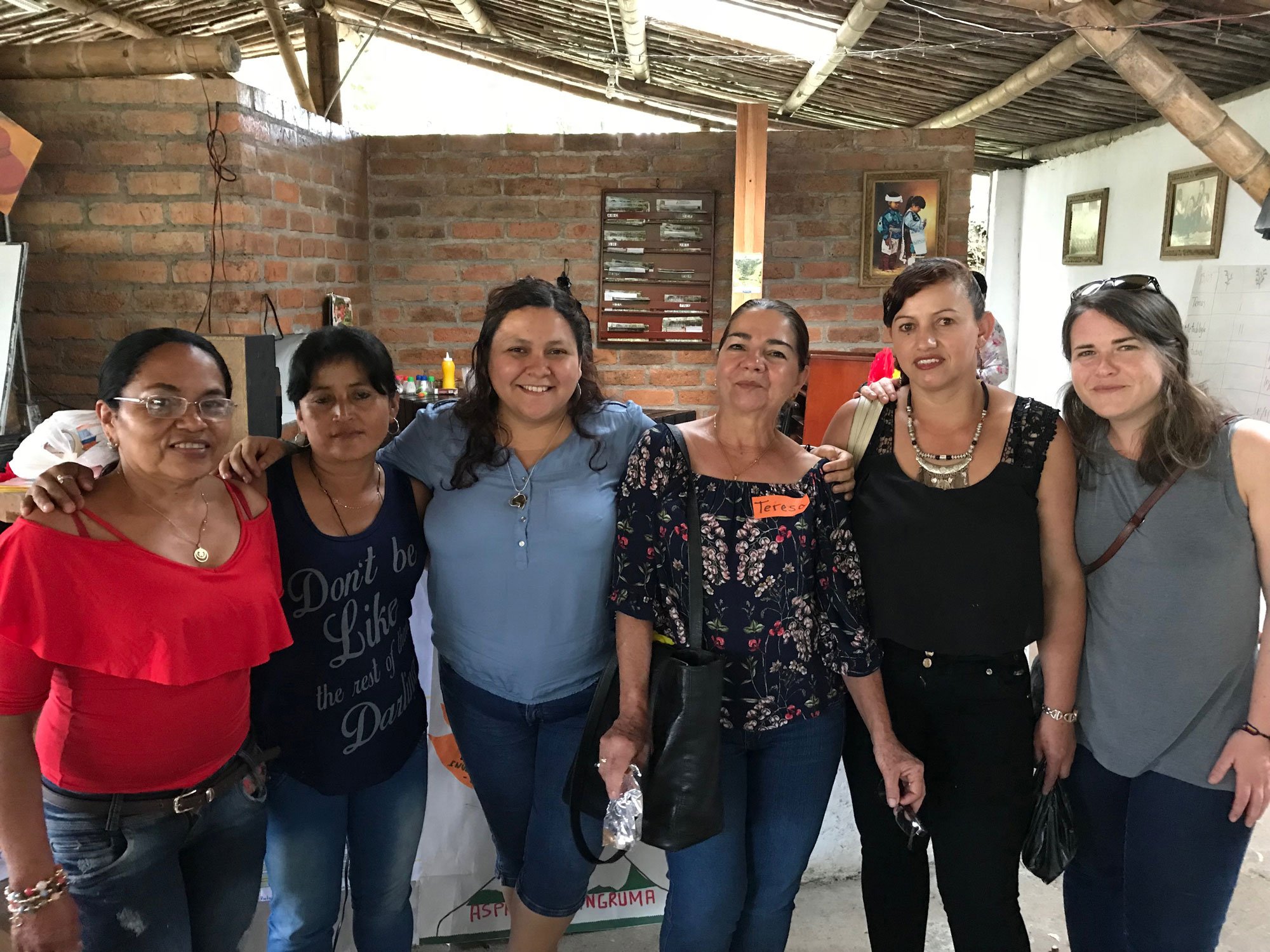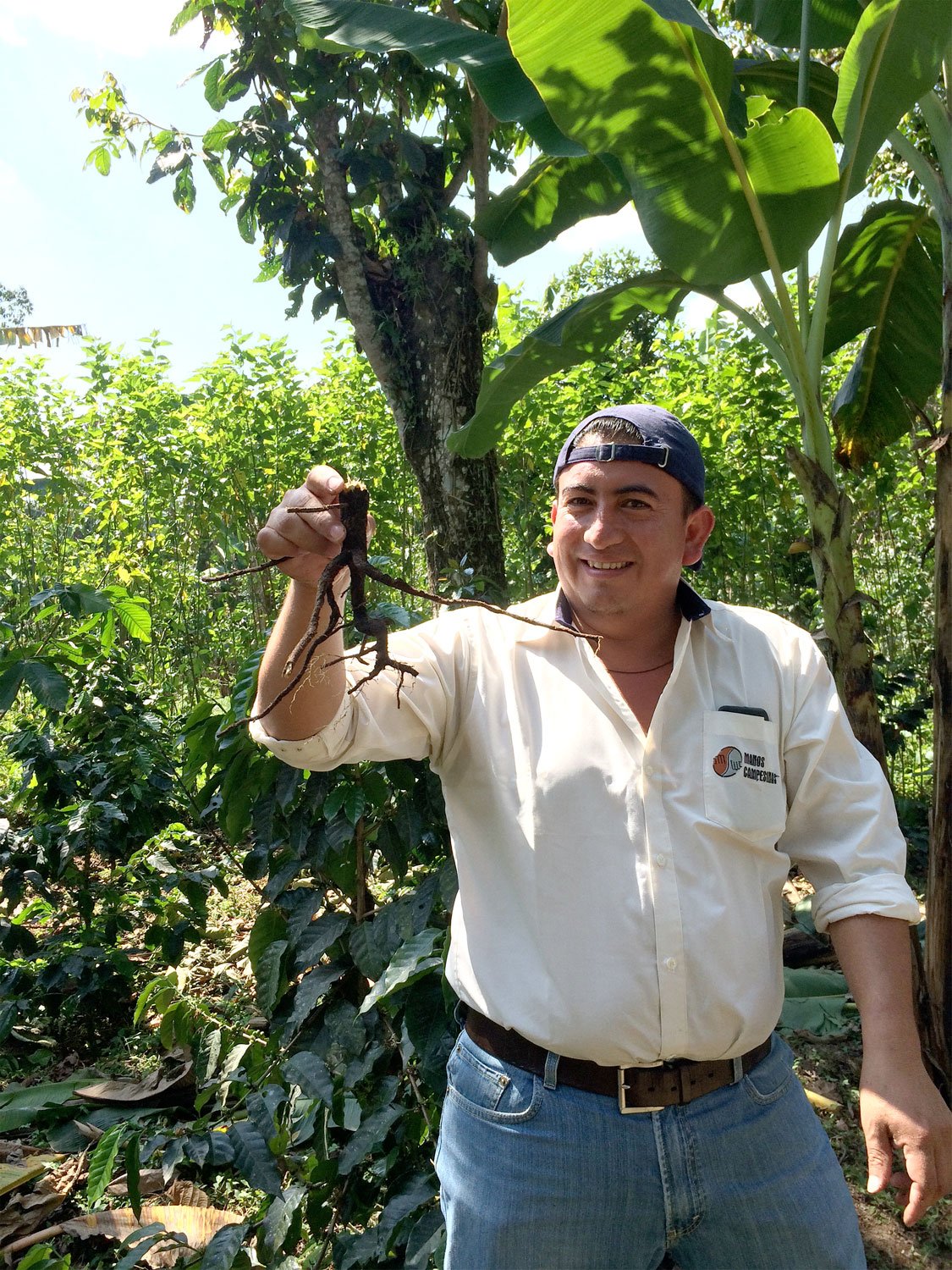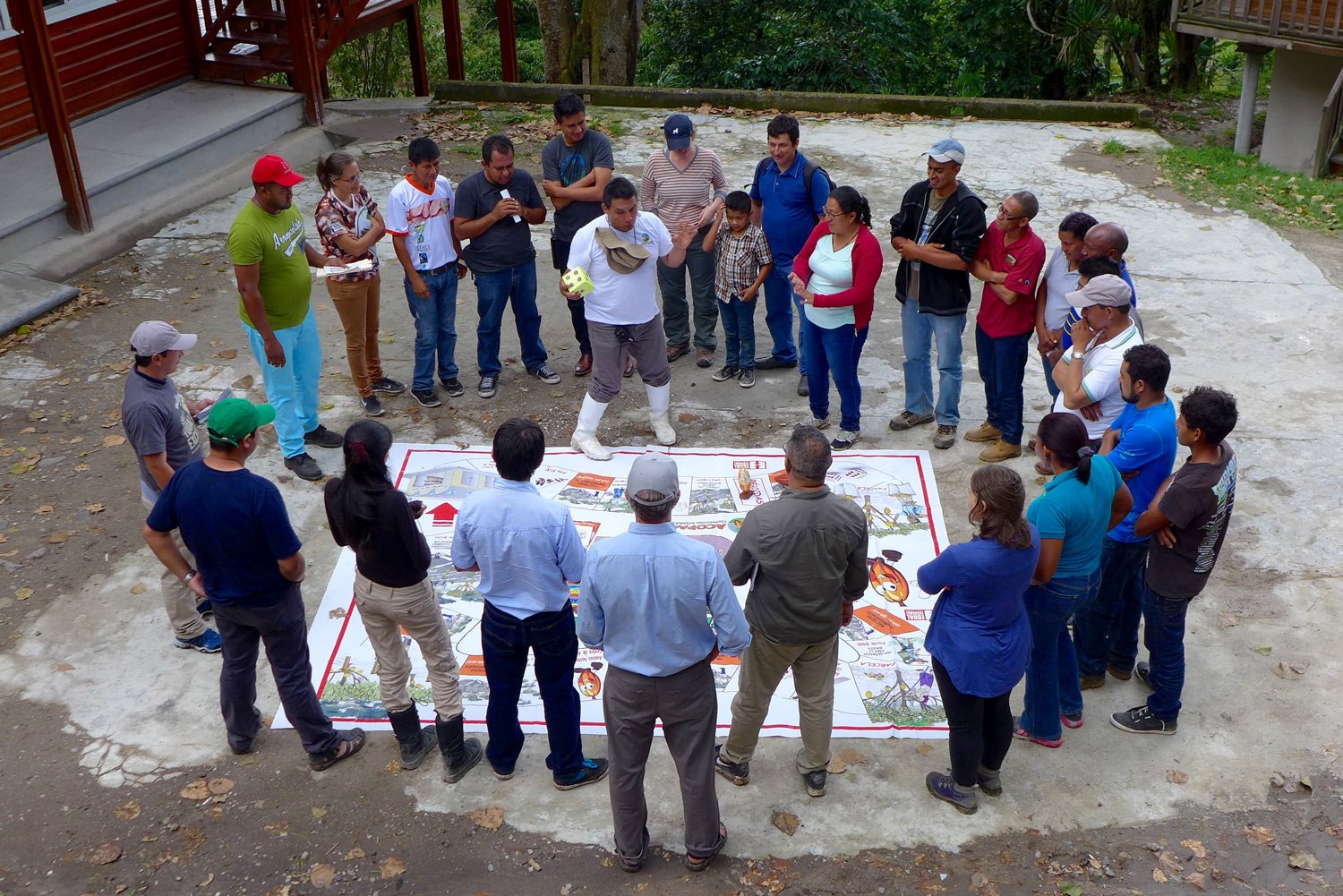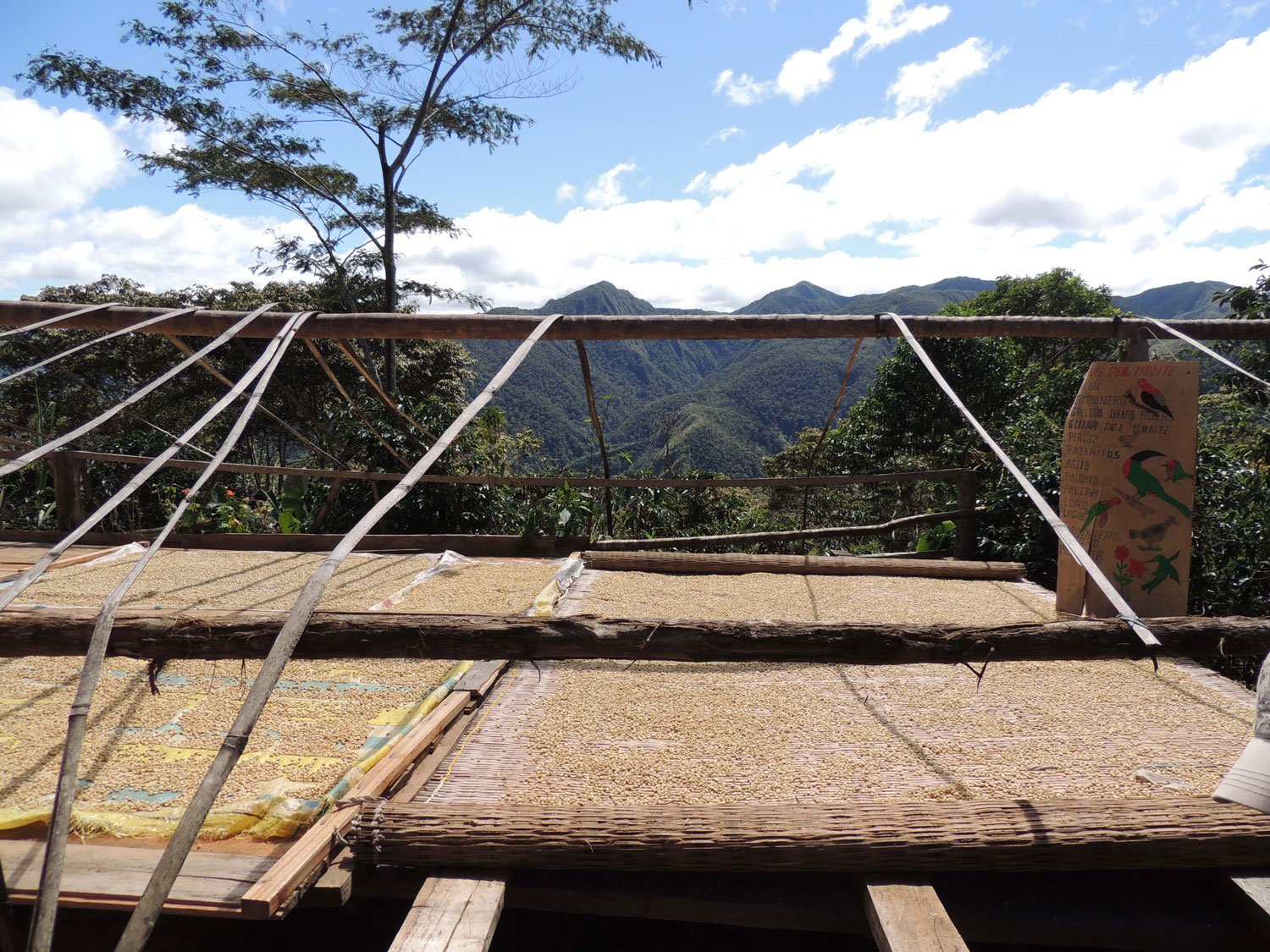Co-op Projects and the Cooperative Economy
Building a cooperative economy
At the heart of Equal Exchange is the mission to build and strengthen a cooperative economy. Cooperative structures build equality by increasing ownership, control and equity in the exchange of value. As a worker cooperative, we work to extend the ideals that are part and parcel to our own structure to the choices we make as a business.
Whether a community-owned coop grocer, a farm cooperative, a real estate cooperative, or a worker cooperative like ours, cooperatives work together toward shared goals. Equal Exchange’s fairly traded products are sourced from farm cooperatives and collectives, and in the US we proudly source from small scale family farms and organizations such as New Communities as we extend the philosophy of fairly traded goods from support of farmers abroad to support the farming economy inside the United States.
Learn more about the broad range of cooperatives you too can form, join, or support within your own community:
Worker Ownership, US Federation of Worker Cooperatives
What is a Co-op? National Cooperative Business Association CLUSA International
Real Estate Cooperatives, Sustainable Economies Law Center
Supporting gender equity
In 2017, Equal Exchange provided funding for the ASPROCAFE Ingruma coffee co-op in Colombia to support income diversification with a rotating loan fund for women and youth. The loans were used to support projects such as farm crop & livestock diversification and start-up costs for entrepreneurs launching small businesses. Flor Maria Bueno used the microloan to start a hair salon out of her home, adding a secondary source of income for her family. All in all, 82 women and youth have received low-interest microloans.
Equal Exchange supports women’s cooperatives and democratically run cooperatives that promote gender equity. Through financing initiatives, purchasing choices and our internal structure Equal Exchange remains committed to Gender Equity and our coffees are a powerful vehicle for supporting this pillar of the cooperative economy.
Learn more: Women in Coffee
Investing in regenerative agriculture
Human life on earth depends on healthy, living soil—soil abundant with nutrients and microorganisms and healthy creatures. Conventional agriculture degrades soil, but regenerative agricultural practices revitalize it! That’s why cooperatives like Manos Campesinas in Guatemala prioritize practices like building organic fertilizer production centers at the community level, so farmers can “feed” their land with the nutrients the soil needs. And, what’s more, Manos Campesinas is investing in farmer-to-farmer training programs, so neighbors can teach and learn regenerative practices from each other.
Learn more: Leaders in Sustainable Agriculture
Youth empowerment
Farmers in the COMSA coffee cooperative in Honduras take education seriously. The COMSA farmers share a model farm where they can experiment and learn together, and they even consider their brains—or their “Gray Matter”—as one of the 5 key ingredients in regenerative agriculture. COMSA took this dedication to learning a step further by using fair trade premiums to build a school for the children of coffee farmers. They now enroll 182 children through the 8th grade, and are looking to expand through high school!
Learn more: Supporting Youth in Agriculture at Mandurvia
Fighting climate change
“These are the lungs of the world. This is the only way we can contribute—taking care of the environment.”
Farmers’ connections with their land run deep. This is especially true when farmers live on the outskirts of protected ecological reserves, as is the case for coffee cooperative CECOVASA in Peru. Here they must take their role as environmental stewards seriously. Whether they’re building shared organic compost production facilities or developing regenerative farming trainings for their neighbors, small farmer cooperatives are truly on the front lines in the fight for our planet and are some of those most affected by climate change. Organic crop diversification, reforestation projects, and fighting downward price pressures that can contribute to damaging practices are some of the vital ways we can work together to help fight climate change.
Learn more: Organic vs. Conventional Coffee


